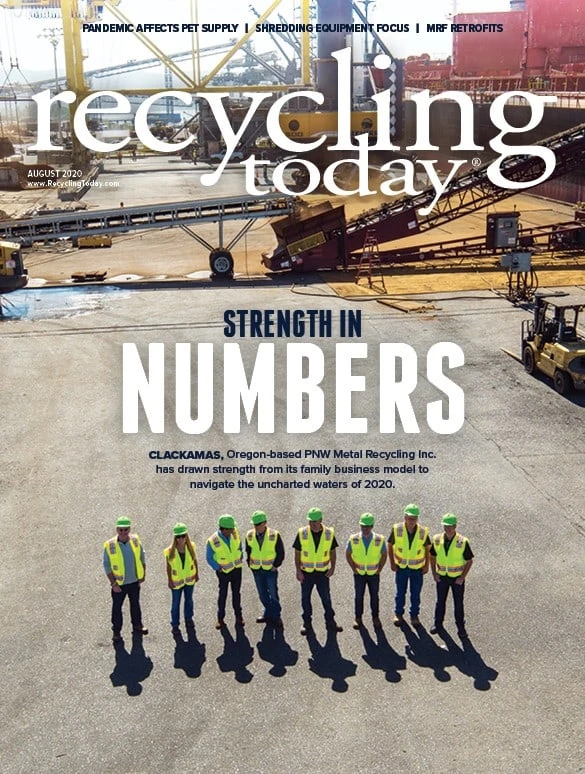
Andrew Lincoln
Vice president of ferrous operations at Lincoln Recycling
Despite his family owning and operating Lincoln Recycling, headquartered in Erie, Pennsylvania, when he was growing up, Andrew Lincoln says he did not expect to work full time in the industry.
“I think, with all young kids, when you get out of college, you want to move away from home and experience what life is like elsewhere,” he says.
After receiving an undergraduate degree in economics from the University of New Hampshire, Lincoln settled in the Boston area to work for a large insurance company. At the same time, he continued his studies at Babson College in Wellesley, Massachusetts, and received an MBA in 2006. Upon receiving this degree, his father, Howard, asked if he would be interested in coming back to Erie to help Lincoln Recycling.
“Things were going well in my career, but I wanted something more,” he says. “Insurance to me wasn’t exciting, and I had an entrepreneurial mindset. I also like to see, touch and feel products that come in and go out, and you don’t see that in insurance. I was excited for the opportunity, so I decided to come back.”
"I feel that it’s OK to fail as long as you take the calculated risks and minimize the downside.”
Since joining the family company full time in 2006, Lincoln has held a variety of positions and now serves as vice president of ferrous operations. He’s also volunteered with the Institute of Scrap Recycling Industries, Washington, over the years and joined the association’s executive committee this year.
Recycling Today (RT): Many companies have had to adjust in response to COVID-19 this year. How has Lincoln Recycling been affected by the pandemic?
Andrew Lincoln (AL): Postpandemic, operating is definitely more challenging for our business and all businesses. I’ve been involved in a peer group here in Erie wrestling with how we can operate in this new space and looking at new technologies that can help us.
For instance, we’re using Zoom to have meetings with clients and figuring out how to have face-to-face meetings when we can but keeping 6 feet apart.
Some things haven’t changed much, but you do have to communicate better with your customers and with your mills to let people know you’re still there to service and operate for them.
RT: In your career, what have been some challenges you’ve faced and successes you’ve achieved?
AL: Some of the challenges and successes for me are not being afraid of failure.
I felt afraid to fail while working in a large insurance company. Everyone was competing to get to the top, and we didn’t want to make mistakes, or you felt like you missed a step.
Being in this role in my company as more of an entrepreneur, I feel that it’s OK to fail as long as you take the calculated risks and minimize the downside.
Here, we’re always tinkering with how we do things. It’s a learning curve and, essentially, we try to bring fixed costs down to be more competitive.
RT: Where do you see the industry heading in the next few years?
AL: Outside of our industry, I’m hopeful for a return of U.S. manufacturing. As a result of the pandemic, I’ve heard U.S. companies are looking to source parts more within the U.S. That will be a good end result for U.S. recyclers.
Within our industry, I see more consolidation taking place in the future.

Explore the August 2020 Issue
Check out more from this issue and find your next story to read.
Latest from Recycling Today
- Orion ramping up Rocky Mountain Steel rail line
- Proposed bill would provide ‘regulatory clarity’ for chemical recycling
- Alberta Ag-Plastic pilot program continues, expands with renewed funding
- ReMA urges open intra-North American scrap trade
- Axium awarded by regional organization
- Update: China to introduce steel export quotas
- Thyssenkrupp idles capacity in Europe
- Phoenix Technologies closes Ohio rPET facility





